In effect there were three sets of decanter labels, which we can call “The Shippers”, “The Blanks”, and “The Greeks”.
The Shippers
Shipper decanter labels were prepared. In advance these were printed, Pritt-sticked to the back of old business cards, and holes punched. Then strings were cut, all to the same length, and the cards threaded and identically knotted. On the day they were identically hung around eight identical ‘decanters’ — in this case, Pellegrino bottles, but any identical containers would do. The matching juice was decanted into each, without secrecy.
Example ‘Shipper’ decanter label

The Blanks
The same person (for the ’58 event, JDAW) then over-stapled the ‘Shipper’ labels with blank cards. Again, things matched, with staples aligned vertically, and diagonally opposite (shown grey in following diagram).
‘Blank’ decanter label showing location of the two staples

The Greeks
Next, out of the sight of the person who over-stapled the blanks, the bottles were shuffled. This could have been done by an inattentive non-expert member of the bar staff, though for the ’58 event wasn’t. That done, the same person then over-stapled with the Greek decanter labels. As there is no need to hide the blank underneath, one staple sufficed, and more would have been inconvenient.
Example ‘Greek’ decanter label showing location of the one staple
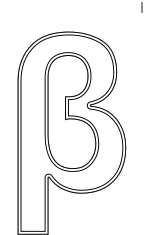
This resulted in
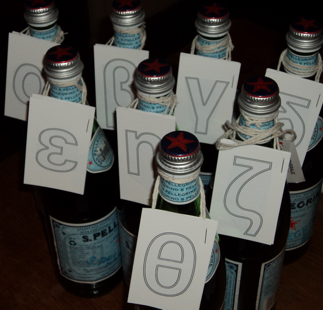
(The ζ bottle has extra strings because also hung on it, merely as a temporary holding space, were the spare “†” and “‡” decanter labels, which are just visible ‘behind’ the bottle.)
The placemats for the 1958 Horizontal on 3rd June 2014:
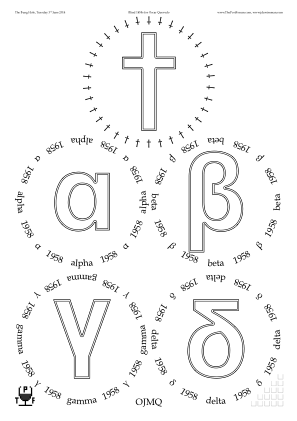
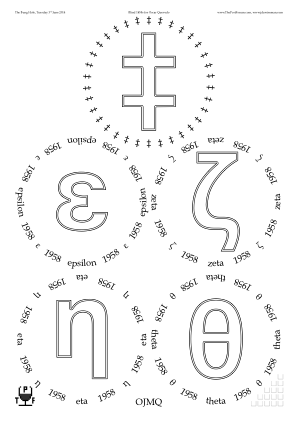
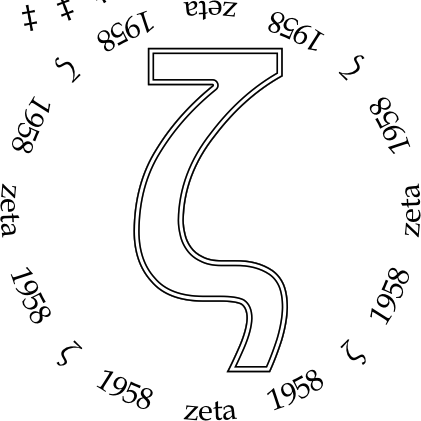
After the Ports were tasted, and people had attempted to guess which was which, each bottom-right staple was gently ripped apart, revealing the Shippers underneath.
Simple. Robust. Needing little man-power, and little blinding.
Necessities:
- Shipper decanter labels;
- Blank decanter labels;
- Greek (or other non-shipper mark) decanter labels;
- Strings of the same length;
- Stapler.